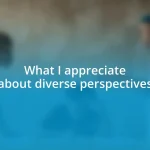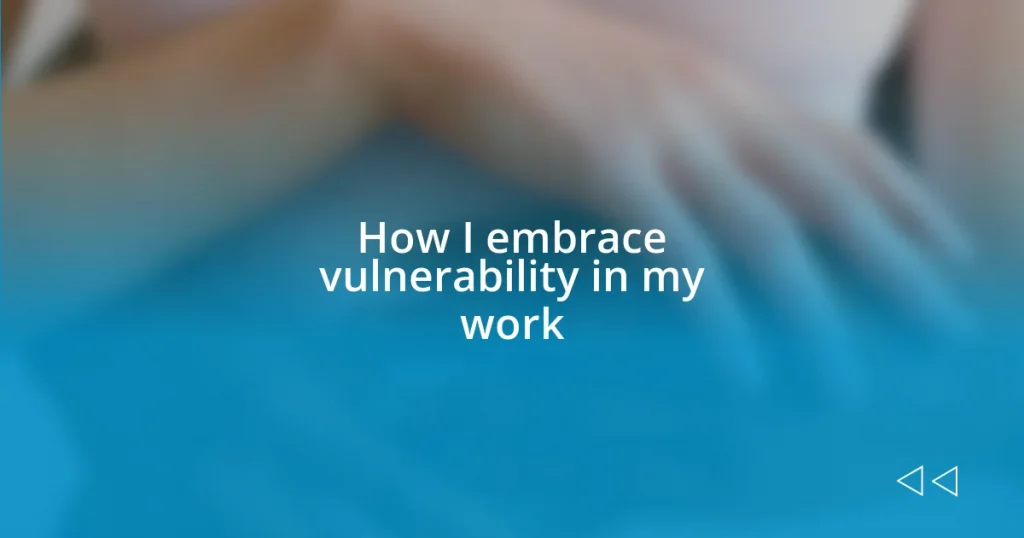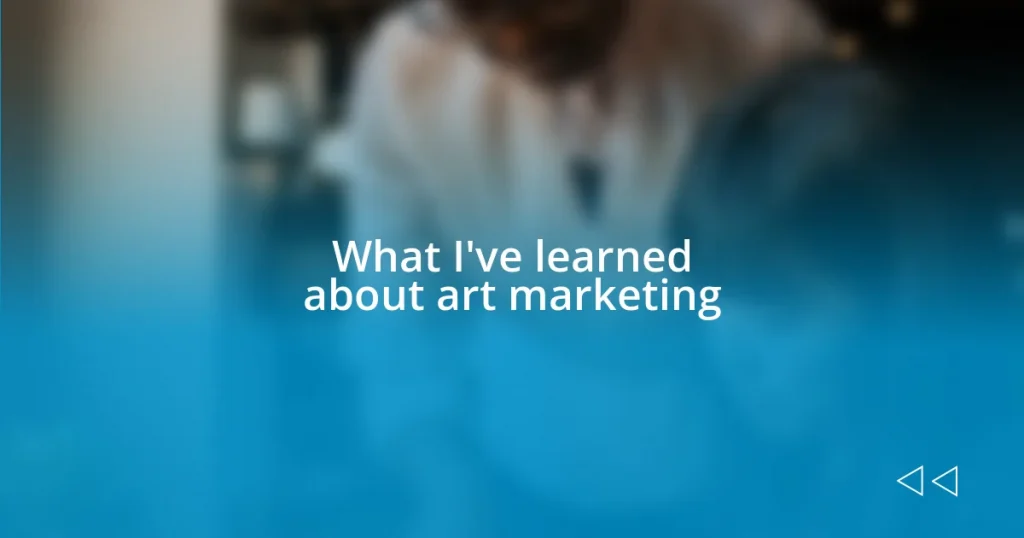Key takeaways:
- Vulnerability fosters trust, collaboration, and creativity in the workplace, turning struggles into opportunities for connection and growth.
- Recognizing and managing vulnerability triggers, like high-stakes situations and critical feedback, enhances emotional awareness and promotes authenticity.
- Creating a supportive environment that celebrates vulnerability encourages open communication, strengthens team bonds, and transforms setbacks into collaborative successes.
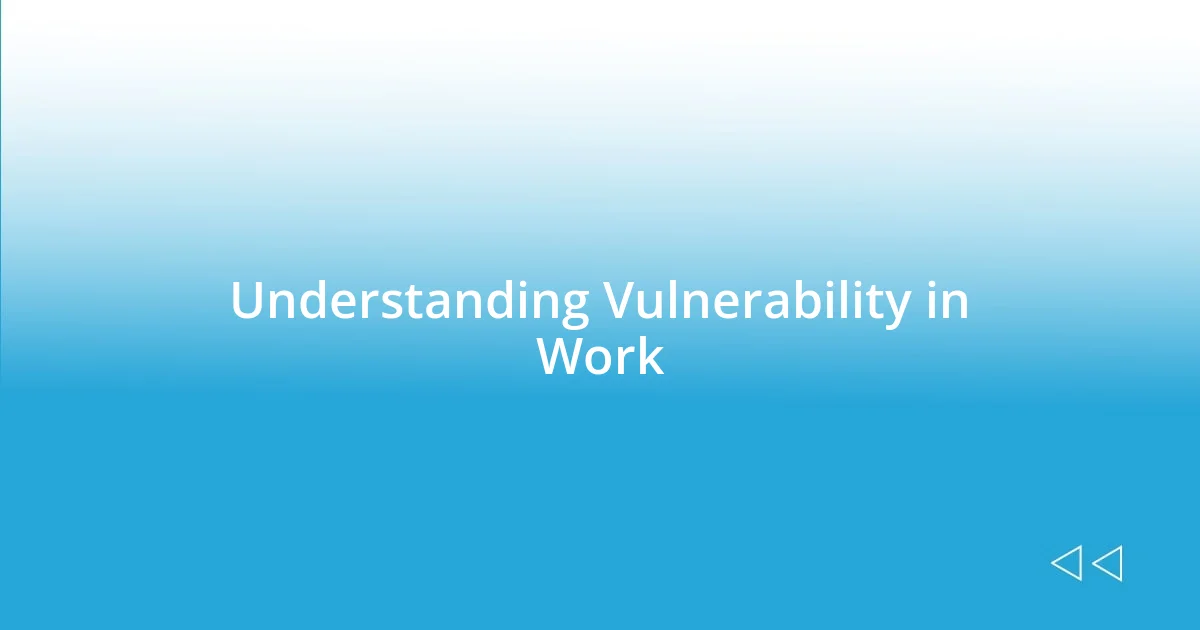
Understanding Vulnerability in Work
Vulnerability in the workplace often feels like a double-edged sword. On one hand, it can spark creativity and foster deeper connections with colleagues. I remember a time when I hesitated to share my ideas during a team meeting, fearing judgment. Yet, when I finally spoke up, I found that my honesty inspired others to do the same. Isn’t it fascinating how our fears can sometimes hold us back from the powerful connections we’re yearning for?
When I think about vulnerability, I see it not just as a weakness but as a form of strength. It takes courage to open up about our struggles or uncertainties, but doing so creates a culture of trust. I once faced a challenging project that left me overwhelmed. By admitting my struggles to my team, we were able to collaborate more effectively. I often wonder, how can we expect to innovate without embracing our human side?
Understanding vulnerability also means recognizing its role in personal growth. Each time I face a setback or a mistake, I remind myself that these moments can lead to valuable lessons. For instance, a presentation I flubbed turned into an opportunity for feedback that ultimately strengthened my skills. Have you ever considered how your own vulnerabilities might serve as catalysts for your development at work? It’s compelling to think that revealing our true selves can lead to profound growth, both personally and professionally.
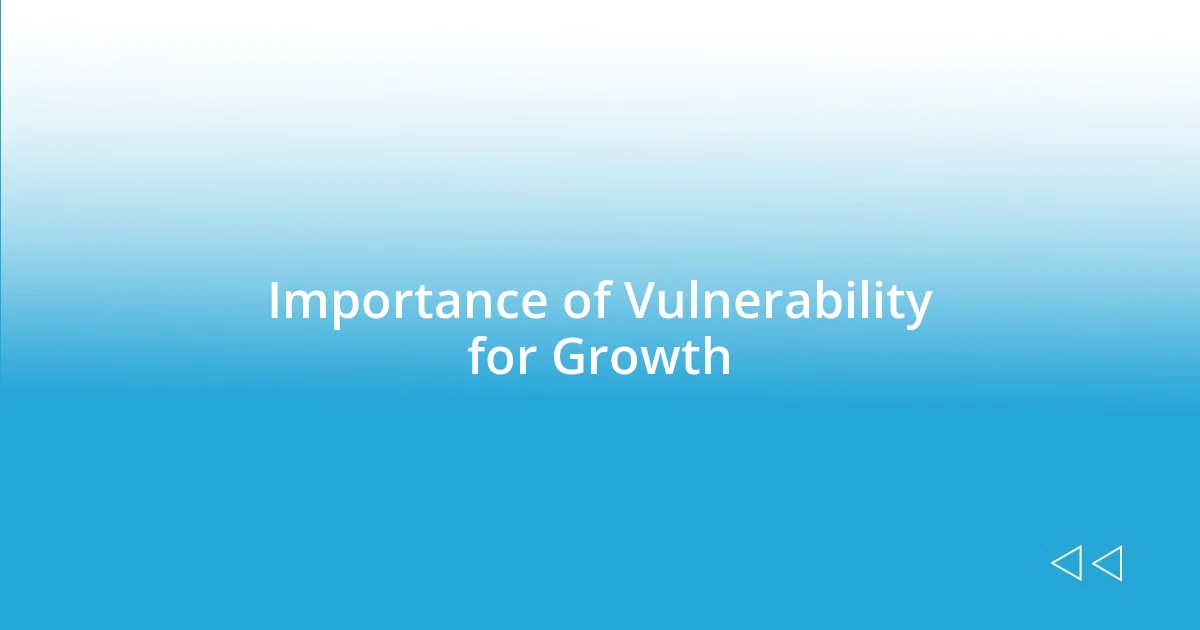
Importance of Vulnerability for Growth
Vulnerability is essential for growth because it fosters a safe space for exploration and learning. I recall a project that went south because I was reluctant to ask for help. It wasn’t until I reached out to a colleague that we discovered a solution together, illustrating how vulnerability can invite collaboration and lead to unexpected breakthroughs. It turns out that admitting our limitations doesn’t weaken us; it actually creates opportunities for connection.
- Vulnerability encourages open communication, leading to stronger teamwork.
- Sharing struggles allows for valuable feedback and collaborative problem-solving.
- Embracing vulnerability cultivates resilience, as each setback becomes a learning opportunity.
- It promotes authenticity, enabling individuals to express their ideas and concerns freely.
- Vulnerability can enhance creativity, paving the way for innovative solutions.
I often think back to my early career days when I was hesitant to voice my passions and ambitions. After revealing my genuine interests in front of the team, I was amazed at the support that poured in. It transformed my view on vulnerability—it became a bridge to discovering shared goals and aspirations. This illumination of my true self opened new doors that I never imagined before. Isn’t it incredible how vulnerability can facilitate our growth journey, both in relationships and our professional skills?
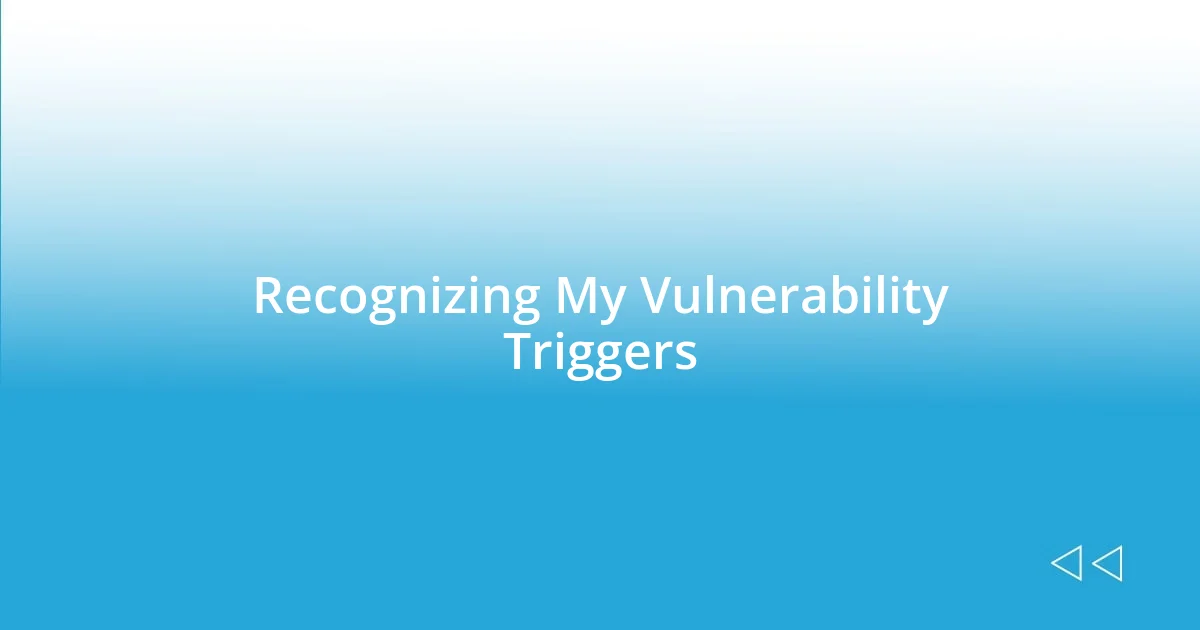
Recognizing My Vulnerability Triggers
Recognizing the triggers that prompt my vulnerability is a crucial step in my journey. I’ve noticed that situations involving high stakes can amplify my feelings of vulnerability. For example, whenever I present my work to leadership, my heart races, and second-guessing my decisions becomes a familiar struggle. This awareness helps me prepare mentally and manage my emotions, allowing me to approach these situations with more confidence.
Another trigger I’ve identified is interpersonal interactions, especially with peers I admire. I once had a moment in a brainstorming session where I felt completely out of my league. The pressure to perform made me hesitant to share my ideas, yet when I pushed past that barrier, I discovered that my contribution sparked valuable discussions. Recognizing that this vulnerability can lead to collaboration has truly transformed my outlook.
Lastly, I find that critical feedback is a significant vulnerability trigger for me. A few months ago, I received constructive criticism on a project I thought was strong. My initial reaction was defensive, but once I took a step back, I realized this feedback was an opportunity for growth. Acknowledging these triggers allows me to navigate my emotions and ultimately foster a more authentic workplace experience.
| Trigger Type | Personal Experience |
|---|---|
| High-Stakes Situations | Presents anxiety but motivates preparation and confidence. |
| Interpersonal Interactions | Admitting fear led to unexpected collaboration and idea sharing. |
| Critical Feedback | Initial defensiveness transformed into a learning opportunity. |
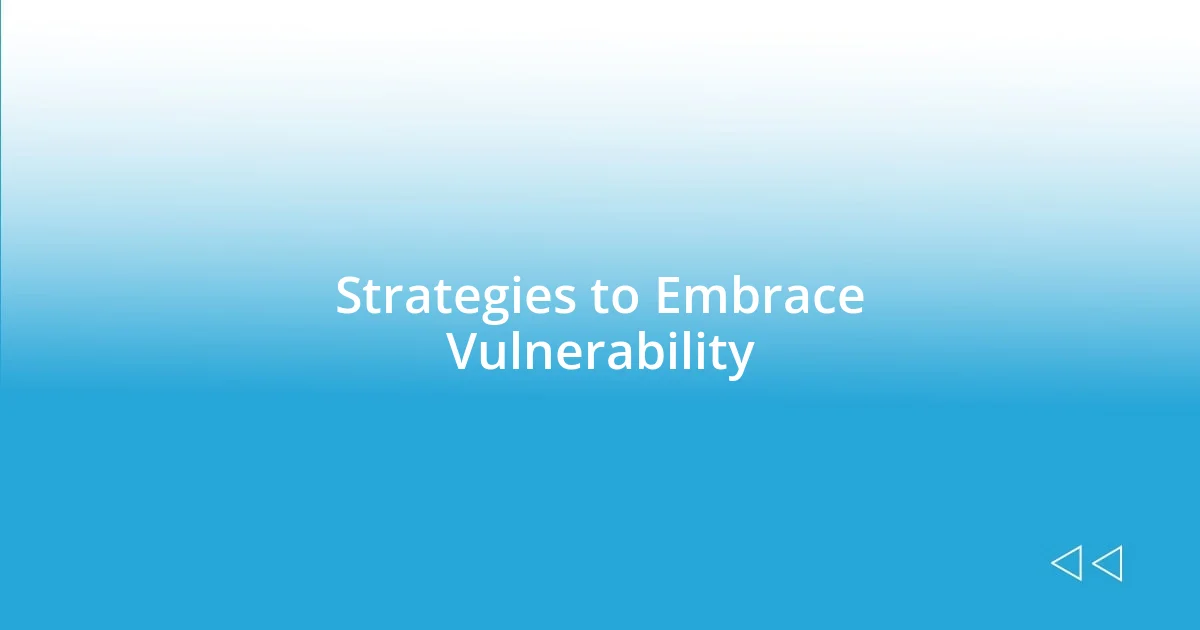
Strategies to Embrace Vulnerability
When I think about embracing vulnerability, one strategy stands out: starting conversations with honesty. I remember a pivotal moment when I openly shared my anxieties about an upcoming project during a team meeting. Instead of minimizing my feelings, I laid it all out there. To my surprise, several teammates echoed my concerns, and that honest exchange fostered an atmosphere of trust. Isn’t it fascinating how vulnerability can instantly establish deeper connections?
Another strategy I find invaluable is reflecting on past experiences. I keep a journal where I document moments of vulnerability, whether it’s a difficult conversation I navigated or feedback that stung a little too much. This practice not only helps me articulate my feelings but also provides me with insights on how I can approach similar situations in the future. It’s like building a toolbox filled with strategies for handling vulnerability—one that I can turn to whenever needed.
Lastly, I’ve learned the power of vulnerability through storytelling. Sharing personal anecdotes in my presentations has been eye-opening; they not only showcase my human side but also resonate with others’ experiences. For instance, one time, I shared a story about a failed project that taught me resilience. The audience leaned in, connected, and even opened up about their own failures. It made me realize that vulnerability isn’t just about revealing weakness—it’s a gateway to shared learning and growth. Have you ever found that your stories have helped others feel more comfortable sharing theirs?
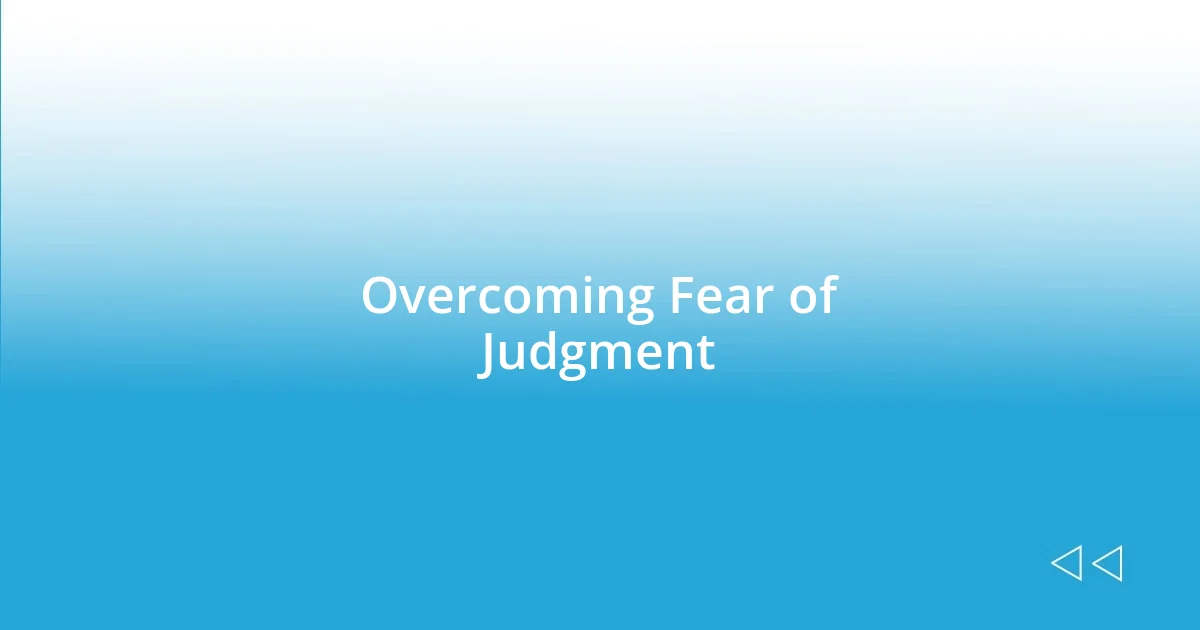
Overcoming Fear of Judgment
When it comes to overcoming the fear of judgment, I often reflect on a time when I hesitated to voice my opinion during a critical meeting. The thoughts racing through my mind were relentless: “What will they think? Will they laugh at my idea?” But then I reminded myself that everyone in that room was also human, grappling with their own insecurities. It’s crucial to remember that we’re all navigating our experiences together, which can help alleviate the pressure of feeling judged.
I’ve also found that seeking feedback, rather than fearing it, can transform my mindset. I once shared a draft with my colleagues, anxious about their reactions. Instead of dreading their opinions, I embraced the opportunity to improve and refine my work. Their constructive insights helped me grow professionally, and I learned that the judgment I feared could actually open doors to collaboration and creativity. Doesn’t it feel empowering to flip judgment into an opportunity for connection?
In my personal experience, I’ve discovered that honesty can dissolve the barriers created by the fear of judgment. I vividly recall a moment when I admitted to my team that I felt overwhelmed by our project’s demands. To my surprise, several others chimed in with their own struggles. This shared vulnerability not only relieved some tension but also forged a stronger bond between us, reminding me that authenticity often outweighs the fear of what others may think. How often do we let the fear of judgment silence our truths, when, in reality, those truths can lead to deeper understanding?
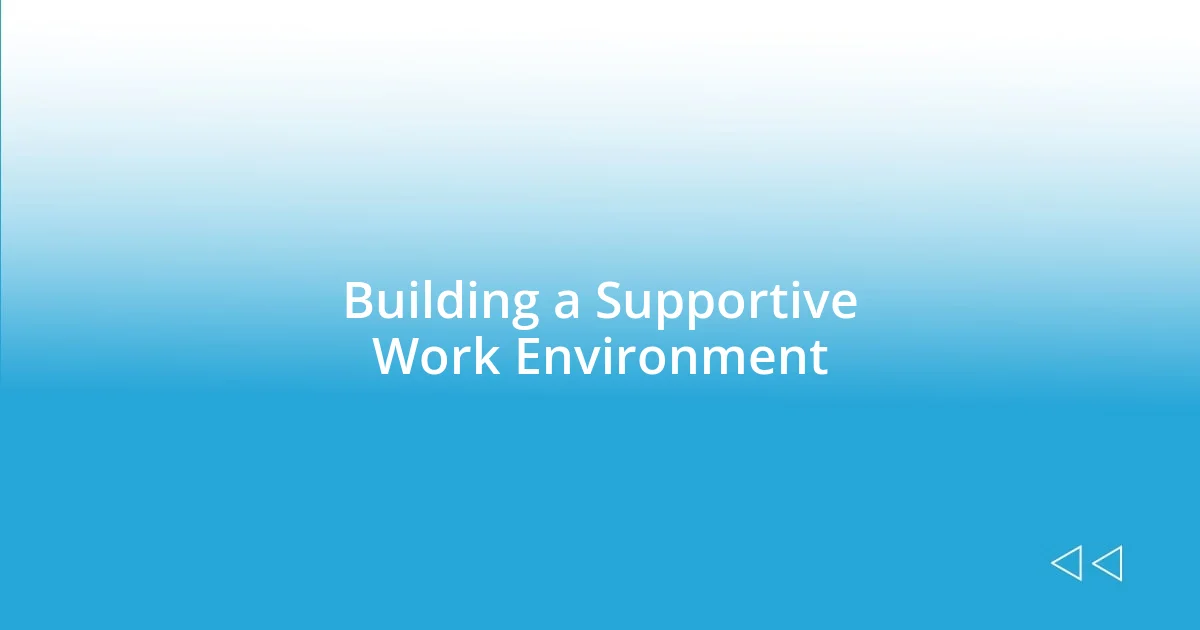
Building a Supportive Work Environment
Creating a supportive work environment has been a game-changer in my journey. I clearly recall a time when my team embraced a culture of open feedback during our weekly check-ins. Instead of the usual superficial comments, we each shared our struggles and successes, shedding light on the fact that we were all in the same boat. It’s incredible how that simple shift made everyone feel valued and understood.
I’ve realized that vulnerability doesn’t just happen spontaneously; it thrives in an environment where it’s actively cultivated. When a colleague once confessed their difficulties with a project, it inspired others to share their own hurdles. I felt a wave of relief wash over the room. How often do we think we’re alone in our challenges, only to discover that shared experiences can lighten the load? The sense of camaraderie that blossomed after that moment was palpable, reinforcing the idea that vulnerability can build valuable connections.
Additionally, I believe encouragement plays a vital role in fostering a supportive atmosphere. I’ve made it a habit to celebrate not just the big wins, but also the small steps many take toward being open and honest. One day, I applauded a teammate for bravely sharing a setback they faced. It was heartening to see others rally around them with words of support. Doesn’t it feel wonderful to know your vulnerability can inspire others? By nurturing such encouragement, we create a haven where everyone feels safe to let their guard down.
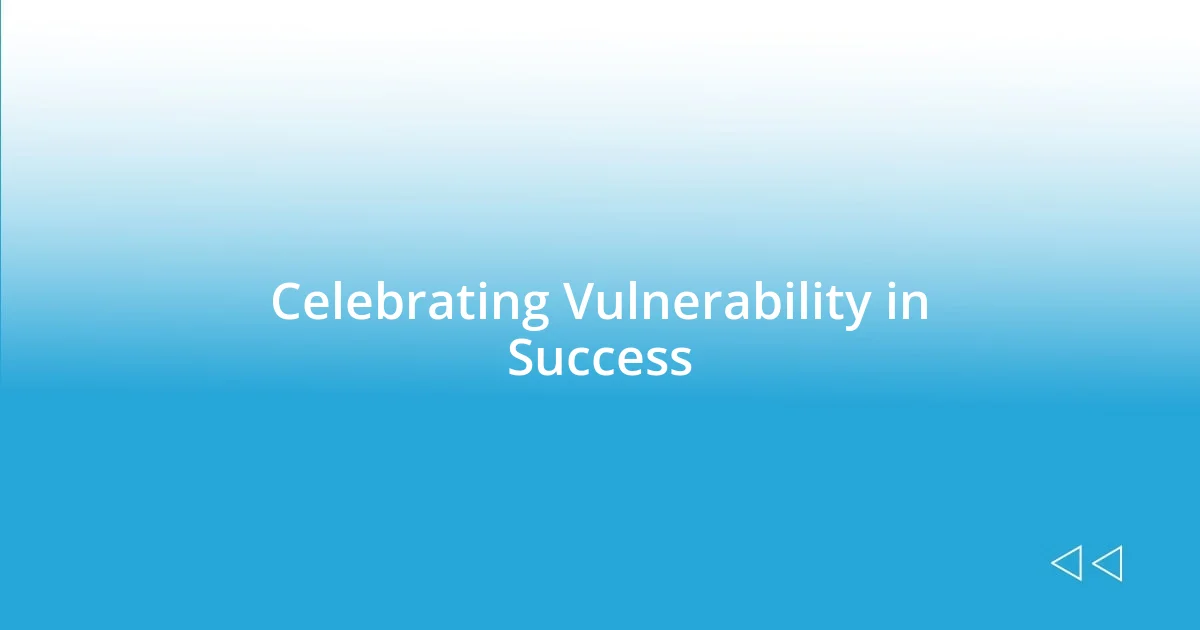
Celebrating Vulnerability in Success
When I think about vulnerability leading to success, I can’t help but remember a pivotal moment in my career. I once presented a project that didn’t go as planned. Instead of masking my disappointment, I chose to share my honest feelings with my team. Their empathy and support surprised me—rather than judgment, they offered encouragement that reignited my passion for the work. Isn’t it fascinating how openness can foster genuine connections that propel us forward?
Embracing vulnerability has often unveiled unexpected opportunities. I recall an instance where I admitted to struggling with imposter syndrome in front of my peers. Instead of feeling alone, I discovered that several colleagues shared similar feelings. We had created a space where honesty was met with understanding, leading to collaborative efforts that sparked innovation. How rewarding is it when vulnerability triggers collective creativity instead of isolation?
Celebrating vulnerability in success is essential to my journey, as it transforms potential setbacks into stepping stones. I remember leading a team meeting where I expressed uncertainty about our direction. What started as a moment of doubt evolved into an open brainstorming session filled with ideas and insights. It was a reminder that embracing our uncertainties not only humanizes the experience but also invites collaboration. Isn’t that what true success is about—growing together through our vulnerabilities?






